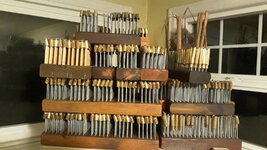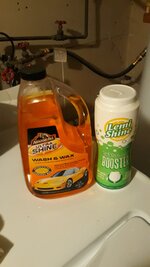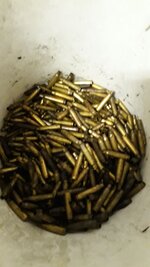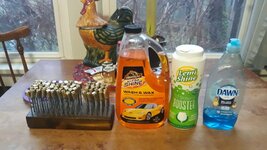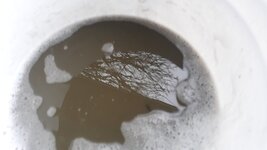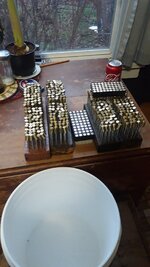Bronze Lifetime
- Messages
- 4,939
- Reactions
- 13,026
Everyone has their own process that works best for them. I like to size and decap before tumbling too. For this reason I will never use any case lube besides RCBS. It's water soluble and easily rinses off.
I bought a Lee APP press for sizing brass before tumbling. With a case feeder on it, I can size a thousand 9mm cases in about 20 minutes. It's a little finicky to get set up right, but when you do, this rinky-dink little press is nothing short of amazing!
Speaking of brittle brass, I have started annealing every single bottle-neck rifle case that gets wet tumbled. I use the same formula as most of you, a little Lemishine and Dawn, but every batch of rifle ammo that I loaded since wet tumbling, if it sat for a while before firing, has cracked necks. I've come to the conclusion that the wet tumbling process contributes to this. I've had no problems with pistol brass at all, but multiple batches of high-pressure rifle rounds, different calibers and brands, all started coming up with cracked necks, and only the ones that were wet tumbled. Just something to consider.
If you load up thousands of rounds of 5.56 and stash them away for a rainy day, you might just end up with a mess when you get around to shooting them.
I bought a Lee APP press for sizing brass before tumbling. With a case feeder on it, I can size a thousand 9mm cases in about 20 minutes. It's a little finicky to get set up right, but when you do, this rinky-dink little press is nothing short of amazing!
Speaking of brittle brass, I have started annealing every single bottle-neck rifle case that gets wet tumbled. I use the same formula as most of you, a little Lemishine and Dawn, but every batch of rifle ammo that I loaded since wet tumbling, if it sat for a while before firing, has cracked necks. I've come to the conclusion that the wet tumbling process contributes to this. I've had no problems with pistol brass at all, but multiple batches of high-pressure rifle rounds, different calibers and brands, all started coming up with cracked necks, and only the ones that were wet tumbled. Just something to consider.
If you load up thousands of rounds of 5.56 and stash them away for a rainy day, you might just end up with a mess when you get around to shooting them.






